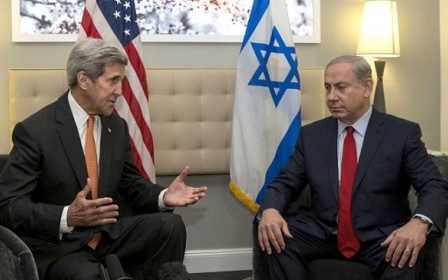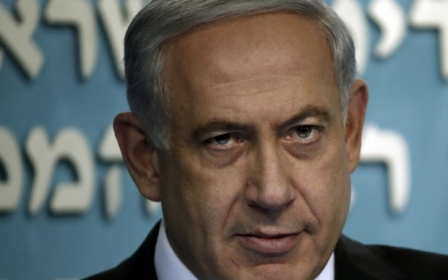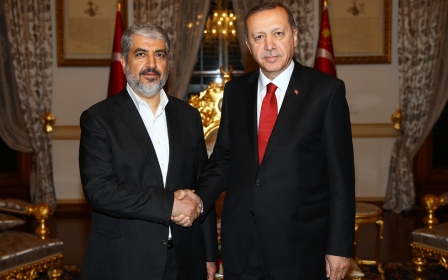Netanyahu: Turkey deal 'immense' for Israeli economy

Prime Minister Benjamin Netanyahu confirmed on Monday that Israel has agreed a deal to thaw relations with Turkey and said it would be a huge boost for the economy.
Speaking in Rome after talks with US Secretary of State John Kerry, Netanyahu told reporters: "I think it's an important step here to normalise relations."
Earlier, an Israeli official had said Israel and Turkey reached a deal on Sunday to normalise ties that soured in 2010 after a deadly Israeli raid on a Turkish aid ship heading to Gaza.
Both sides have been seeking a deal in recent months, with Israel in search of a potential customer for its offshore gas exports and Turkey wanting to restore its regional clout.
Netanyahu said he would lay out the deal in detail later in the day, but said it "has immense implications for the Israeli economy, and I use that word advisedly".
"And I mean positive, immense implications," he said.
Kerry also hailed the deal as a "positive step".
“It looks like the government has given up on its principles and values. It will lose support as a result,” said Ismail Bilgen, whose father was one of those killed on the Mavi Marmara.
“The Justice and Development Party [AKP] enjoys great support due to its resolute principled stance on issues but this move is in total contradiction to that.”
However Ahmet Uysal, a professor of Middle Eastern studies at Marmara University, said restoring ties with Israel is a strategic necessity and should be considered a positive development at any rate.
“Regional developments meant that Turkey found itself besieged on all fronts especially when the crisis with Russia is taken into account. Restoring ties with Israel became important to release some of the pressure on Turkey,” Uysal told MEE.
Additional reporting by Suraj Sharma.
New MEE newsletter: Jerusalem Dispatch
Sign up to get the latest insights and analysis on Israel-Palestine, alongside Turkey Unpacked and other MEE newsletters
Middle East Eye delivers independent and unrivalled coverage and analysis of the Middle East, North Africa and beyond. To learn more about republishing this content and the associated fees, please fill out this form. More about MEE can be found here.




